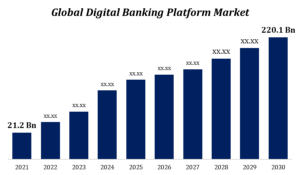Fintech and Financial Education: Empowering Users with Money Management Skills
As the world becomes increasingly digital, the intersection of financial technology (fintech) and financial education is playing a pivotal role in equipping individuals with the necessary skills to manage their money effectively. Fintech solutions are not only revolutionizing the way we transact, invest, and save, but they are also enhancing financial literacy and empowering users with the tools they need to make informed financial decisions. In this article, we will explore the symbiotic relationship between fintech and financial education, highlighting how these two forces are working together to promote financial well-being.
The Need for Financial Education:
- Complex Financial Landscape: Today’s financial landscape is complex, with a multitude of investment options, savings accounts, and credit products. Financial education helps individuals navigate these choices confidently.
- Empowerment through Knowledge: Financial education empowers individuals to make informed decisions about budgeting, investing, debt management, and retirement planning.
- Preventing Financial Stress: Improved financial literacy reduces financial stress and anxiety, leading to better overall well-being.
Role of Fintech in Enhancing Financial Education:
- Interactive Learning Platforms: Fintech platforms offer interactive modules, quizzes, and simulations that educate users about various financial concepts.
- Personalized Financial Insights: Fintech apps analyze user spending habits and provide personalized recommendations to help users budget more effectively.
- Investment Simulators: Some fintech tools include investment simulators that allow users to experiment with investing in a risk-free environment.
- Digital Financial Coaches: Fintech apps offer real-time financial advice and insights, acting as virtual financial coaches.
Empowering Users with Money Management Skills:
- Budgeting and Expense Tracking: Fintech apps enable users to track their expenses, set budgets, and receive alerts when they exceed spending limits.
- Savings and Investment Tools: Fintech platforms provide intuitive tools for setting financial goals, automating savings, and making informed investment decisions.
- Credit Management: Users can monitor their credit scores, receive tips for improving credit health, and access credit-building solutions.
- Retirement Planning: Fintech tools offer retirement calculators, helping users estimate their retirement needs and plan accordingly.
Challenges and Considerations:
- Digital Literacy: Ensuring that users are comfortable with fintech platforms and digital tools is crucial for effective financial education.
- Data Security: Fintech platforms must prioritize user data security and educate users about best practices for protecting their financial information.
- Tailoring to Diverse Audiences: Effective financial education must cater to diverse audiences with varying levels of financial literacy.
Future Directions:
- Gamification and Incentives: Integrating gamification elements and rewards can make financial education more engaging and effective.
- Collaboration with Educational Institutions: Fintech companies can partner with schools and universities to incorporate financial education into curricula.
- Continual Learning: As fintech evolves, promoting a culture of continual financial education will be crucial to keeping users up-to-date.
The synergy between fintech and financial education is transforming how individuals approach money management. By harnessing the power of technology, fintech platforms are not only providing innovative financial services but also acting as educators, equipping users with essential money management skills. As these collaborations continue to evolve, individuals will be better equipped to navigate the complexities of the financial world, ultimately leading to improved financial well-being and a more financially empowered society.
Top of Form


































